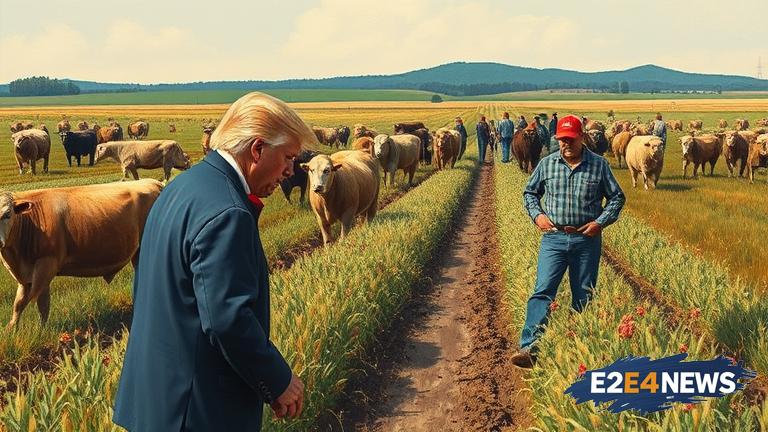The Trump administration’s recent policies on guest workers have created uncertainty for farmers in the United States. The changes to the H-2A visa program, which allows farmers to hire temporary foreign workers, have left many farmers wondering if they will be able to find the labor they need to harvest their crops. The H-2A program is a vital part of the agricultural industry, with many farmers relying on it to fill labor gaps during peak harvest seasons. However, the Trump administration’s policies have made it more difficult for farmers to hire workers through the program. One of the main changes is the requirement for farmers to advertise job openings to American workers before hiring foreign workers. While this may seem like a reasonable requirement, many farmers argue that it is unnecessary and will only serve to delay the hiring process. Additionally, the administration has increased the fees associated with the H-2A program, making it more expensive for farmers to hire foreign workers. These changes have left many farmers feeling frustrated and uncertain about their ability to find the labor they need. Some farmers have even reported having to leave crops unharvested due to a lack of workers. The agricultural industry is a significant contributor to the US economy, and the uncertainty surrounding the H-2A program is having a ripple effect throughout the industry. Many farmers are calling on the administration to reconsider its policies and find a solution that will allow them to hire the workers they need. The issue is not just affecting farmers, but also the rural communities that rely on the agricultural industry. The lack of workers is also affecting the quality of the crops, as farmers are having to prioritize which crops to harvest first. The Trump administration’s policies on guest workers are also affecting the US’s competitiveness in the global agricultural market. Other countries, such as Canada and Mexico, have more relaxed policies when it comes to hiring foreign workers, making it easier for their farmers to compete in the global market. The US agricultural industry is also facing competition from other countries, such as Brazil and Argentina, which have lower labor costs. The uncertainty surrounding the H-2A program is also affecting the mental health of farmers, who are already under a lot of stress due to the physical demands of farming. Many farmers are feeling anxious and overwhelmed by the uncertainty, and some are even considering leaving the industry altogether. The Trump administration’s policies on guest workers are also affecting the environment, as farmers are having to use more machinery and technology to compensate for the lack of workers. This is leading to increased greenhouse gas emissions and soil erosion. The issue is not just an economic one, but also an environmental and social one. The US agricultural industry is a vital part of the country’s food system, and the uncertainty surrounding the H-2A program is having a significant impact on the industry’s ability to produce food. The Trump administration’s policies on guest workers are also affecting the country’s food security, as the lack of workers is leading to a decrease in crop yields. The US is already importing a significant amount of food from other countries, and the uncertainty surrounding the H-2A program is only going to increase this reliance on foreign food sources. The issue is a complex one, and there is no easy solution. However, many farmers and industry experts are calling on the administration to work with them to find a solution that will allow them to hire the workers they need. This could involve streamlining the H-2A program, reducing the fees associated with it, and providing more support for farmers who are struggling to find workers. Ultimately, the uncertainty surrounding the H-2A program is having a significant impact on the US agricultural industry, and it is essential that the administration finds a solution to this issue as soon as possible.





